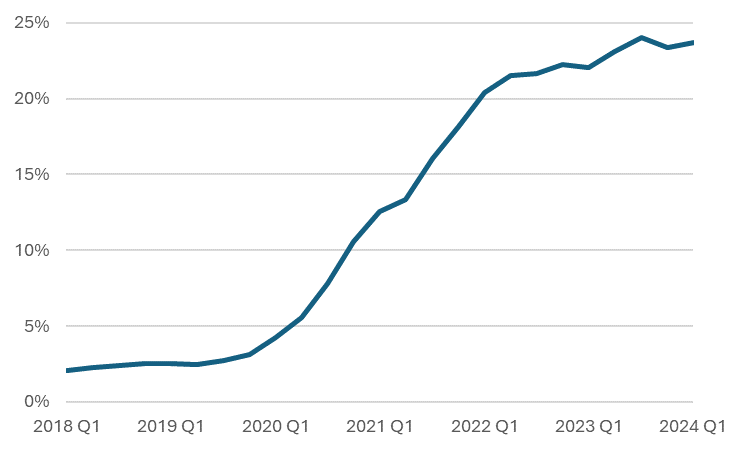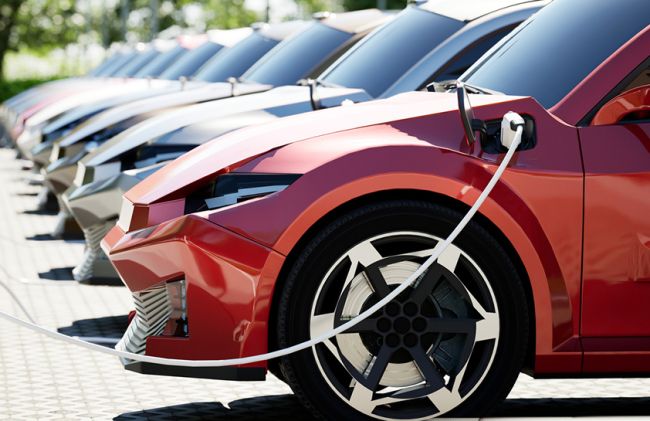An alarming fall-off in the growth of new EV sales?
Jato Dynamics recently reported that August had reflected Europe’s largest year-on-year drop in new electric vehicle registrations.

Earlier this month, Jato Dynamics reported that August had reflected Europe’s largest year-on-year drop in new electric vehicle registrations. Wow, what a wake-up call! In an era when regulation mandates our adoption of electric vehicles (EVs) across the UK and Europe, the number of new EVs registered in August 2024 was about 150,000 less than the previous year. What’s going on here?
Recently, Filipe Munoz, global analyst at Jato, attributed the slowdown to high prices, a lack of clarity around incentives and worries that EVs will have low residual value. Mr. Munoz is right that EVs are more expensive than comparable diesel or petrol-powered vehicles, but what does this mean for the future of EV adoption and for the development and funding of charging infrastructure to power that transition?
Like the rest of Europe, the UK has seen a sharp plateau in the growth of EV adoption. In the three years from 2020 through 2022, the penetration of EVs within new car registrations leapt from less than 3% to something like 22%. Since the beginning of 2022, that rate has sharply flattened to only reach about 25% by Q1 of this year.

Have people fallen out of love with electric vehicles? Not necessarily, and Jato’s headlines may be a bit deceiving.
These are still very positive numbers. In the 12-month period ending Q1 2024, the UK saw about 475 thousand new EVs registered, nearly 100 thousand more than the comparable period ending Q1 2023. By the end of 2023, the penetration of EVs within the UK’s total parc of registered vehicles went from 3.2% to 4.4%. However, while everything’s still going in the right direction, this levelling-off in new registrations remains quite concerning. So again, what’s going on here?
Exploiting the market for company cars and salary sacrifice
The overwhelming majority of new EVs on UK roads have been taken via the company car channel and through salary sacrifice schemes. EVs within these already tax-efficient distribution channels enjoy a tax break in that drivers bear zero tax burden on benefits in kind. The inclusion of this tax break within what is effectively a leasing structure goes a long way to obscuring the price difference between EVs and comparable petrol and diesel.
There are approximately 3 million company-registered vehicles in the UK, a large portion of these being company cars and cars accessed through salary sacrifice. In contrast, there are about 1.5 million EVs on the road, with nearly 1 million of those company-registered. Their average lease term of 36 to 48 months indicates that the market for EVs through tax-efficient company car and salary sacrifice schemes is topping out. As a result, EV manufacturers are now having to expand into the retail market, selling through dealership networks that may not be prepared to bring this new technology to the mass market, which will certainly be more price-sensitive.
Compliance with the ZEV mandate
That 24% penetration of new car registrations is itself a very important number. Here in the UK (and as reflected below), the Government’s ZEV Mandate dictates the “trajectory” by which vehicle manufacturers are to increase EVs within their total new car sales.
| Year | 2024 | 2025 | 2026 | 2027 | 2028 | 2029 |
| Target | 22% | 28% | 33% | 38% | 52% | 66% |
| Year | 2030 | 2031 | 2032 | 2033 | 2034 | 2035 |
| Target | 80% | 84%* | 88%* | 92%* | 96%* | 100%* |
Is it a coincidence that the penetration rate of EVs within new car registrations has slowed to just about that specified by the ZEV Mandate? Maybe, maybe not. Should we expect to see that penetration rate expand to comply with regulation? Yes, I think so.
What, me, worry?
No, I don’t think so. The global transition to EV technology has always had far more to do with regulation than with consumer behaviour. When the most important car markets around the world legislate in favour of EVs, vehicle manufacturers have no choice but to convert 100% of their production to a fashion that is as orderly as possible.
While the global economy demands that the cost of road transport remain stable, we should expect manufacturers to manage pricing to preserve return on investment. We should expect to see regulatory intervention to support manufacturers’ commercial viability and to moderate the cost of road transport (which, remember, is a significant part of the “cost of living”).
For support with your EV adoption strategies, contact Matt Clark.
You may also be interested in watching our webinar on the topic.























